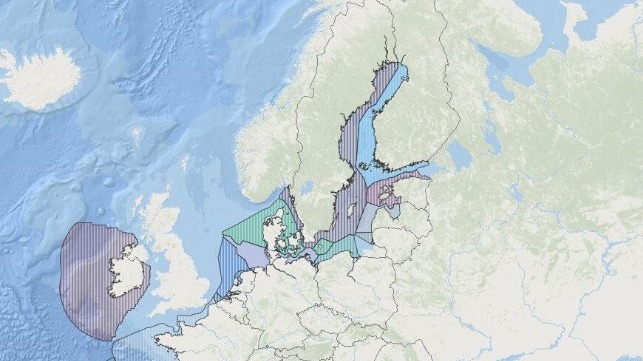Russia May Try to Redraw its Boundaries in the Baltic Sea

Russia Proposes Controversial Review of Maritime Zones in the Baltic Sea
Russia has riled up its western neighbors with a new proposal to re-draw its maritime borders in the Baltic region. Early this week, reports emerged that the Russian Ministry of Defense is proposing an expansion of its territorial waters in the Baltic Sea. Specifically, Russia is hoping to revise maritime borders in parts of the eastern Gulf of Finland, as well as the territory near its coastal cities of Baltiysk and Zelenogradsk in the Kaliningrad region.
However, this proposal encroaches on the coastal boundaries of Lithuania and Finland, causing concerns amongst the NATO members in the region.
“Another Russian hybrid operation is underway, this time attempting to spread fear, uncertainty and doubt about their intentions in the Baltic Sea,” said Lithuania’s Foreign Affairs Minister, Gabrielius Landsbergis.
Finland also called the review of maritime zones by Russia a form of hybrid influence. The Finnish Foreign Affairs ministry implored Russia to abide by the UN Convention on the Law of the Sea, which discourages unilateral revision of maritime zones.
In the Russian proposal for delineation changes, the authors justify the claim on the basis that the current baselines, established by the USSR Council of Ministers in 1985, “do not fully correspond to the current geographical situation.” That is, the reference points used back then were recorded using small-scale marine navigation charts, which were based on the work from the mid-20th century. According to Russia’s logic, the geographical coordinates ought to be redrawn based on modern cartographical measurements.

that matters most
Get the latest maritime news delivered to your inbox daily.
While the Kremlin has said there is nothing political in the defense ministry’s proposal, most NATO members bordering the Baltic Sea interpret the move as a form of provocation. Analysts see this as yet another indication of the changing political landscape of the Baltic Sea, with Russia pushing back against increasing NATO control in the region. Currently, eight of the nine countries bordering the Baltic Sea are NATO member states, with the sole exception of Russia.
With the Baltic Sea hosting a growing offshore wind sector, as well as a spiderweb of subsea telecom and energy links, uncertainty in maritime governance would be an unwelcome development for the region – and could provide Russia with new leverage.
